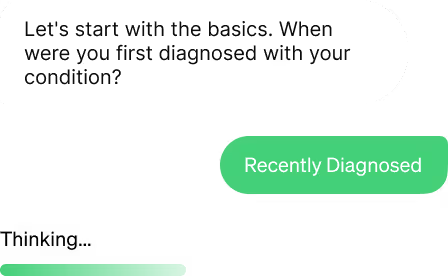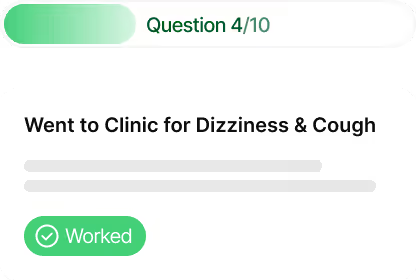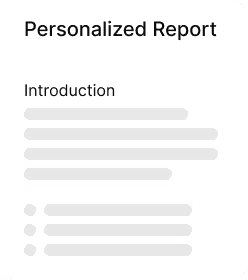Your personal
AI assistant for
Chronic Obstructive Pulmonary Disease

.avif)
.avif)
.avif)
.avif)



.avif)


.avif)
.avif)
.avif)
.avif)



.avif)


.avif)
.avif)
.avif)
.avif)



.avif)


Our platform gives you a space to note your experiences, prepare for medical visits, and learn from insights shared by others living with COPD. Whether you’re trying to better understand symptoms, adjust to new routines, or find the right questions to ask your doctor, mama health helps you stay organized and feel more informed.
You’re not alone in this — mama health is built to support you through the ups and downs of COPD, helping you reflect on what matters most and advocate for your care.
What is chronic obstructive pulmonary disease
(COPD)?
Chronic obstructive pulmonary disease (COPD) is an umbrella term used to describe a group of long-term lung conditions that cause persistent breathing difficulties. These conditions share a common feature: airflow limitation that is not fully reversible.
The two main conditions included under COPD are:
- Chronic bronchitis - which involves long-term inflammation of the airways and excess mucus production, leading to cough and frequent chest infections.
- Emphysema - which involves damage to the air sacs (alveoli) in the lungs, reducing the lungs’ ability to exchange oxygen effectively.
Many people with COPD have features of both conditions, and symptoms can vary widely from person to person.


How COPD develops and who it affects
COPD develops gradually, usually after long-term exposure to substances that irritate and damage the lungs. It is an umbrella term that includes conditions such as chronic bronchitis (airway inflammation and mucus buildup) and emphysema (damage to the air sacs in the lungs). Many people experience features of both.
The most common cause of COPD is long-term cigarette smoking, but COPD is not limited to smokers. Other important causes and risk factors include air pollution, workplace dust or chemical fumes, indoor smoke from cooking or heating, and a rare genetic condition called alpha-1 antitrypsin deficiency.
COPD most often affects adults over the age of 40 and is one of the leading causes of chronic illness worldwide. Symptoms typically worsen over time, with periods of stability interrupted by flare-ups that can significantly affect daily life. Although COPD primarily affects the lungs, reduced oxygen levels can also impact energy, sleep, and overall physical endurance.
Common symptoms of COPD
- Shortness of breath, especially during physical activity
- Chronic cough
- Increased mucus or phlegm
- Wheezing or chest tightness
- Fatigue or low energy
- Frequent respiratory infections
- Difficulty exercising or performing everyday tasks
How can mama health help?



Developed and supervised by medical experts
What patients are saying
There are so many testimonies and so many people like me.
I hope this platform grows so we can help so many people who feel alone with a disease.
In the end we are many and all together we can fight.❤️"
There are so many testimonies and so many people like me.
I hope this platform grows so we can help so many people who feel alone with a disease.
In the end we are many and all together we can fight.❤️"
Frequently asked questions
The healthcare system is missing a crucial piece—real patient experiences. We bring those voices back into the system, making healthcare truly patient-centric. By connecting data from patients, doctors, hospitals, and research, we help unlock new insights, improve treatments, and turn today’s incurable diseases into tomorrow’s breakthroughs.
- See what works – Learn from others with the same condition and avoid trial-and-error treatments.
- Get a clear health picture – Track your journey, compare with others, and gain deeper understanding.
- Be part of something bigger – Your experience helps improve healthcare and accelerate research.
We use the information shared on mama health to improve treatments and services for all patients. However, we ensure that no one—neither other patients, scientists, nor healthcare companies—can identify you personally.
To request the deletion of your data, simply send an email to support@mamahealth.com.

.avif)

.avif)




